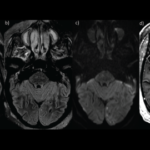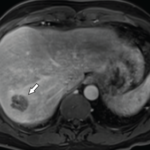Brendan Antiochos, MD, provided a timely update on research and treatments related to vasculitis, addressing treatments for ANCA-associated vasculitis and giant cell arteritis, COVID-19 vaccination and more.


Brendan Antiochos, MD, provided a timely update on research and treatments related to vasculitis, addressing treatments for ANCA-associated vasculitis and giant cell arteritis, COVID-19 vaccination and more.
the ACR RISE Registry Team |
The ACR RISE Registry staff highlights need-to-know information and key changes for the 2023 performance year as outlined in the proposed rule released July 7.

A study has shown that in untreated patients with early RA, treatment with methotrexate combined with the biologic therapies abatacept or certolizumab-pegol resulted in greater CDAI remission rates than active conventional therapy with prednisolone, sulfasalazine or hydroxychloroquine.

Fazila Aseem, MD, MPH, Alexander D. Jeffs, MD, Enid Y. Sun, MD, MPH, Randaline R. Barnett, MD, Courtney Blodgett, AG-ACNP, Winnie Lau, MD, Casey Olm-Shipman, MD, MS, Matthew F. Sharrock, MD, Rhonda Cadena, MD, Yueh. Z. Lee, MD, PhD, Alfredo C. Rivadeneira, MD, & Clio A. Rubinos, MD, MS |
Scleromyxedema is a primary cutaneous mucinosis characterized by a diffuse and generalized papular skin eruption of mucinous deposits throughout the upper dermis. In addition to dermatologic manifestations, scleromyxedema may involve the cardiopulmonary, gastrointestinal, renal and nervous systems. Dermato-neuro syndrome (DNS) is a rare, severe neurologic complication of scleromyxedema.1,2 The pathogenesis of DNS is unknown, but…

Ryan Guerrettaz, MD, Angelo Ciliberti, MD, Rochella Ostrowski, MD, Elise Wolff, DO, Nadia Qureshi, MD, & Ramzan Shahid, MD |
Acute febrile neutrophilic dermatosis, or Sweet syndrome, is an inflammatory disease that classically presents with fever, leukocytosis and tender, erythematous plaques characterized by neutrophilic infiltrates on biopsy. Sweet syndrome has been reported in association with several autoimmune diseases, including inflammatory bowel disease, systemic lupus erythematous, rheumatoid arthritis and sarcoidosis.1 Here, we discuss a case of…

Keri Losavio & Julie Nusbaum, MD |
In light of new challenges to individuals’ reproductive rights and the known challenges of clinical management of rheumatic disease patients during pregnancy, we review the current state of reproductive rheumatology and the management of patients with rheumatic disease during pregnancy.
Background & Objectives Worldwide, osteoarthritis (OA) is a highly prevalent, chronic joint disease that causes pain, disability and loss of function. Global trends demonstrated an increase of more than 100% in years lived with disability due to OA from 1990 to 2019. However, no nonsurgical intervention exists to prevent, halt or even delay OA progression….

Linda Childers |
Jennifer May, MD, a rheumatologist with Rapid City Medical Center, South Dakota, completed her undergraduate degree at Augustana University, Sioux Falls, S.D., and earned her medical degree at the University of South Dakota School of Medicine, Vermillion. She was in the fourth grade when she first began playing the viola. Although she came to love…

Katherine Chakrabarti, MD, & Andrew Vreede, MD |
Abscesses are typically caused by infections, but some are, instead, sterile. Aseptic abscesses (AAs) are characterized by the same neutrophil-rich histopathology as infectious abscesses; however, they don’t improve with antibiotics. Rather, AAs require treatment with anti-inflammatory medications. Although relatively rare, this phenomenon is important for rheumatologists to recognize given its frequent association with underlying systemic…

McMahan et al. examined how abnormal gastrointestinal (GI) transit may contribute to GI severity and symptoms in patients with systemic sclerosis (SSc). About 90% of people with SSc have GI tract involvement, and understanding the connection between GI symptoms, their severity and abnormal GI transit may permit targeted therapeutic approaches for these patients.